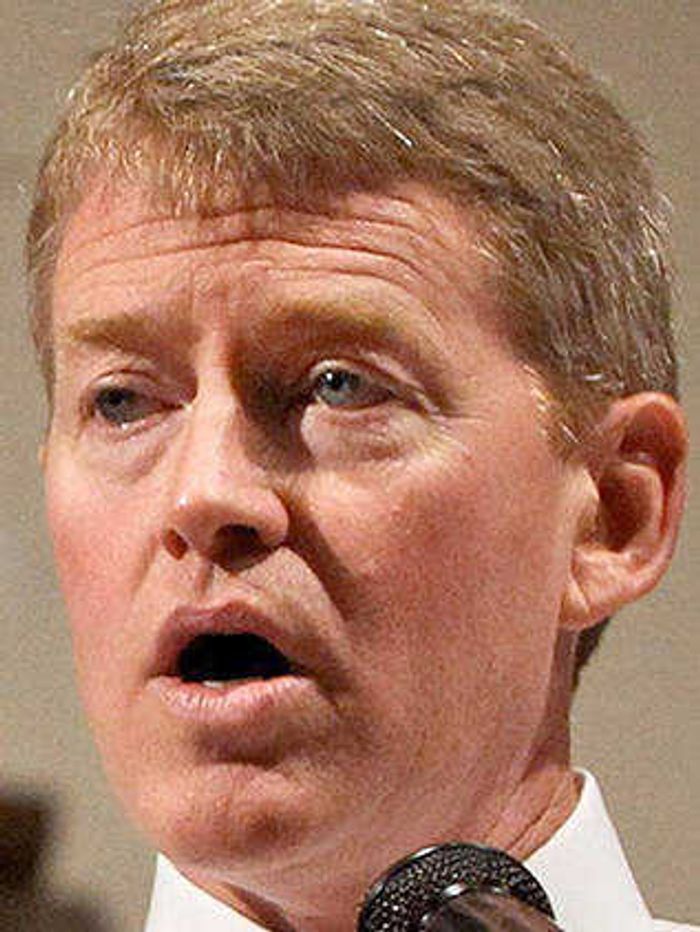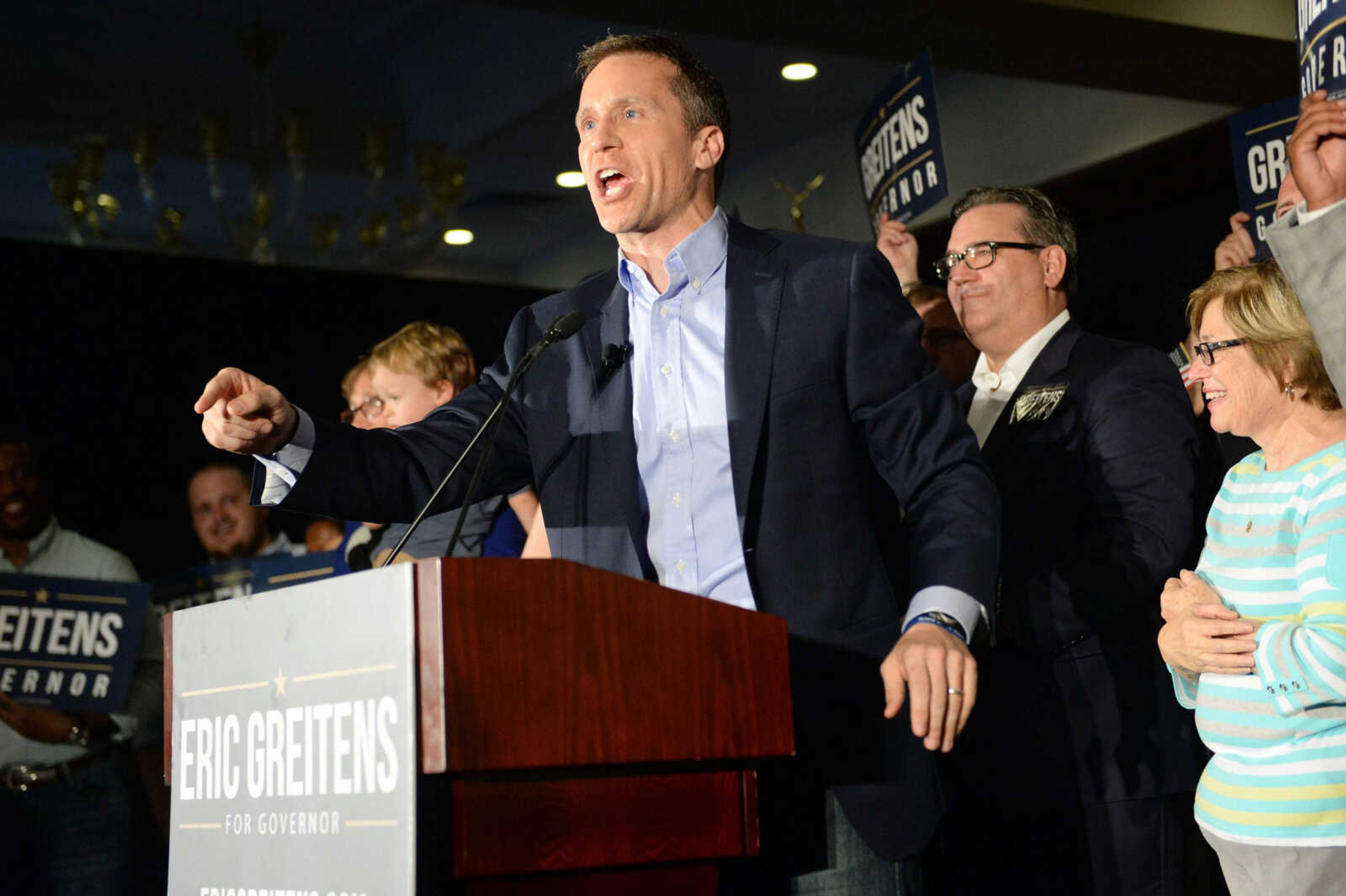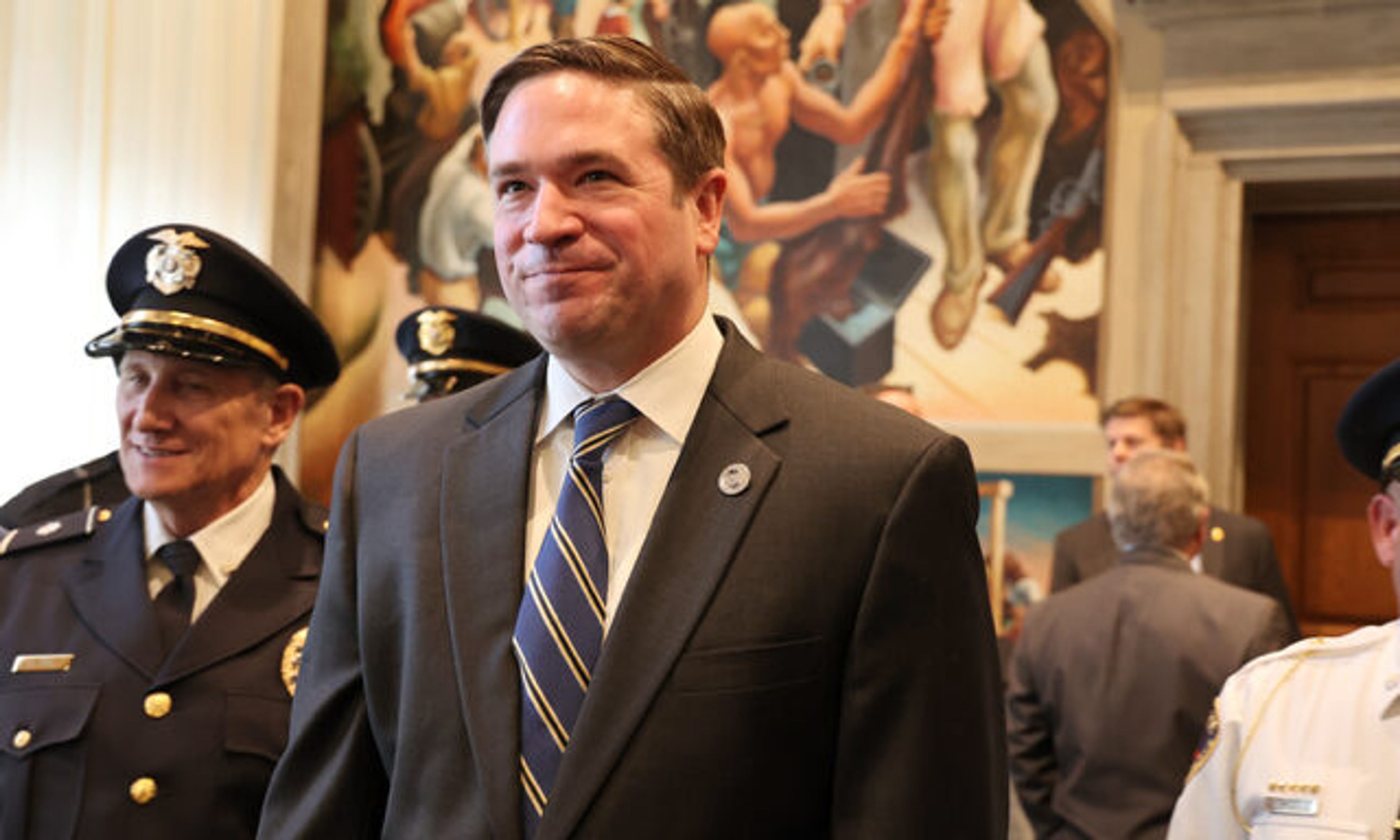GOP candidate goes macho to win Missouri governor primary
JEFFERSON CITY, Mo. -- In the final days before Missouri's Republican gubernatorial primary, candidate Eric Greitens responded to a Democratic attack ad by firing more than 100 rounds from a machine gun as an announcer declared in a rebuttal ad he would bring out "the big guns" to "fight Obama's Democrat machine."...
JEFFERSON CITY, Mo. -- In the final days before Missouri's Republican gubernatorial primary, candidate Eric Greitens responded to a Democratic attack ad by firing more than 100 rounds from a machine gun as an announcer declared in a rebuttal ad he would bring out "the big guns" to "fight Obama's Democrat machine."
Greitens, a former Navy SEAL, prevailed in a hard-fought, four-way primary Tuesday, earning the right to face Democratic Attorney General Chris Koster in a Nov. 8 gubernatorial election. The race features many of the same undercurrents as the presidential campaign between Republican businessman Donald Trump and Democratic former secretary of state Hillary Clinton.
Like Trump, Greitens portrays himself as a macho outsider ready to blow up politics as usual. And the early attack ad hinted the brash Greitens is perhaps the one Republican that Koster, who carries decades of political experience, least wanted to face.
Greitens' message amounts to nothing more than "'let's fire machine guns and do sit-ups into the camera,'" Koster said while launching his general election campaign Wednesday.
"I don't get what this has to do with running the government," said Koster, a former Republican state senator and prosecuting attorney.

Yet Greitens noted attack ads were not launched by Democratic-leaning groups against any of the other Republican primary candidates -- businessman John Brunner, Lt. Gov. Peter Kinder or former Missouri House speaker and U.S. Attorney Catherine Hanaway.
"Chris Koster was so afraid of our campaign that he felt that the only way that he could win is by trying to rig the election by choosing the opponent that he was going to run against," Greitens said late Tuesday night, using similar rhetoric about a rigged political system as Trump and Democratic presidential runner-up Bernie Sanders.
Greitens, 42, of St. Louis, has a remarkable resume. He's been a Rhodes scholar, White House fellow, boxer, martial arts expert and best-selling author. He has traveled the world as a photographer on humanitarian missions documenting the conditions of war refugees and homeless children. He joined the Navy in 2001, just months before the Sept. 11 attacks, and later was chlorine-gassed in a suicide bomb attack in Iraq.
After his military career, he founded The Mission Continues, a not-for-profit that connects veterans with volunteer work to ease their transition back home. Greitens developed a nationwide network of donors for the organization, some of whom have helped finance his gubernatorial campaign.
Missouri has no limits on how much candidates can receive from donors. Greitens got $1 million from California venture capitalist Michael Goguen, who has been sued by a woman alleging he sexually abused her for years. Goguen has denied the abuse allegations, which were cited in the attack ad.
Greitens has declined calls by political rivals to return the money, saying he won't rush to judgment while the case is pending.
Greitens won the split Republican primary with less than 35 percent of the vote. Many voters interviewed by The Associated Press said they were drawn to Greitens by his outsider's call to shake up the political establishment.
"I think if we were able to measure it, we'd find that a lot of the Trump voters in the spring were Greitens voters in the August primary," said Dave Robertson, a political-science professor at the University of Missouri-St. Louis.
Greitens and the other GOP candidates sought to tap into anger among some conservatives about the handling of several racial incidents in the state.
The candidates sharply criticized the way Democratic Gov. Jay Nixon responded to riots after the 2014 fatal police shooting of Michael Brown in Ferguson and to protests over racial concerns last fall at the University of Missouri in Columbia.
Greitens was particularly dismissive of the student protesters, comparing them with the young military members he served with in Iraq and Afghanistan.
"I find it a little hard to hear when I hear students complaining that life on campus is just too tough," Greitens said during debates.
Greitens set up a committee for a potential gubernatorial run just days before the Feb. 26, 2015, suicide of Missouri Auditor Tom Schweich, another gubernatorial candidate. Though Greitens had no role, Schweich had believed other Republicans were turning against him with negative attacks and rumors. His death led to at least temporary calls to tone down negative campaigning.
Associated Press writers Margaret Stafford in Harrisonville and Summer Ballentine in Chesterfield contributed to this report.
Follow David A. Lieb at: http://twitter.com/DavidALieb
Connect with the Southeast Missourian Newsroom:
For corrections to this story or other insights for the editor, click here. To submit a letter to the editor, click here. To learn about the Southeast Missourian’s AI Policy, click here.









